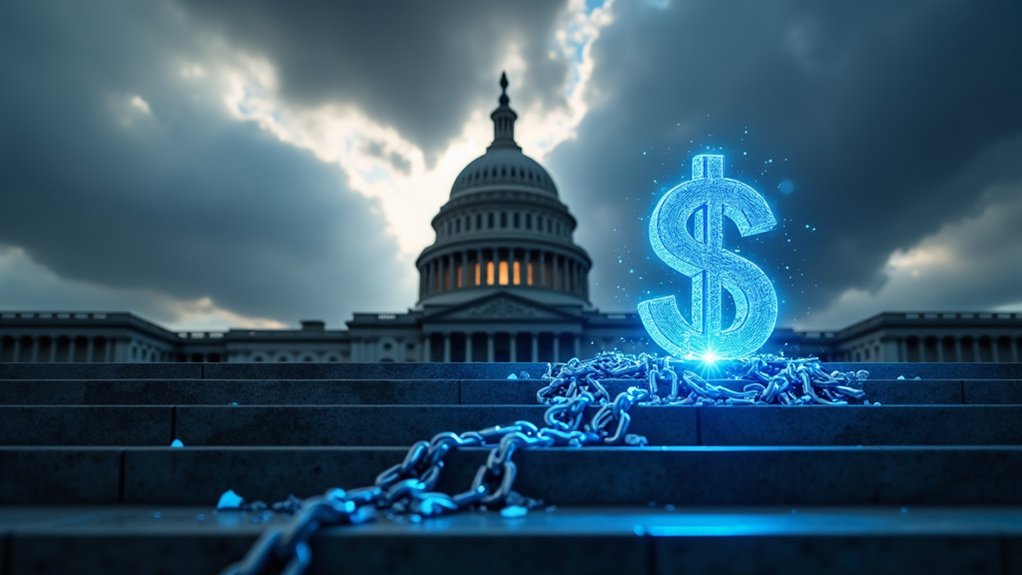North Korean hackers are working overtime. The notorious Lazarus Group has managed to convert a staggering 417,348 ETH into Bitcoin following their record-breaking $1.46 billion heist from Bybit. That’s roughly 6,706 BTC now sitting in their digital coffers. Not bad for a country under crippling sanctions.
The thieves didn’t exactly keep things simple. They split the stolen funds across 50 wallets initially, then got creative. THORChain became their conversion platform of choice, handling a whopping 361,255 ETH (about $900 million). Another 79,655 ETH vanished through the anonymous exchange ExCH, while OKX’s web3 proxy processed 40,233 ETH. Tracking this mess is like following breadcrumbs in a hurricane.
Money laundering at scale: 50 wallets, 3 platforms, nearly a billion dollars – digital shell games played at nation-state level.
This isn’t just any crypto theft – it’s the biggest in history. The $1.46 billion haul makes the 2021 Poly Network hack ($611 million) look like pocket change. Already, $140 million has been successfully laundered. Efficiency matters, even to state-sponsored criminals.
Bybit isn’t taking this lying down. They’ve launched lazarusbounty.com, offering a 5% reward for information leading to recovery. So far, they’ve frozen $42.3 million – a drop in the digital bucket. The group utilized sophisticated spear phishing techniques to initially gain access to Bybit’s systems and cold wallet signers. They’re tracking 6,338 addresses tied to the Lazarus group. Good luck with that.
The FBI has officially named North Korea’s Lazarus Group (aka TraderTraitor) as the culprits. They’re urging the crypto community to block suspicious transactions, as if that’ll stop a determined nation-state. This attack is part of a disturbing pattern, with the group stealing approximately $240 million in just over three months from several crypto entities.
Bybit is feeling the pain. Their Bitcoin reserves plummeted from 70,000 to 52,000 BTC, with total withdrawals exceeding $6 billion since the hack. They claim they’ve secured additional funds to restore assets to 100%. Sure they have.
The implications reach far beyond one exchange. Expect tighter regulations, enhanced KYC requirements, and endless debates about how decentralized platforms should respond to money laundering. Meanwhile, North Korea keeps cashing in.





